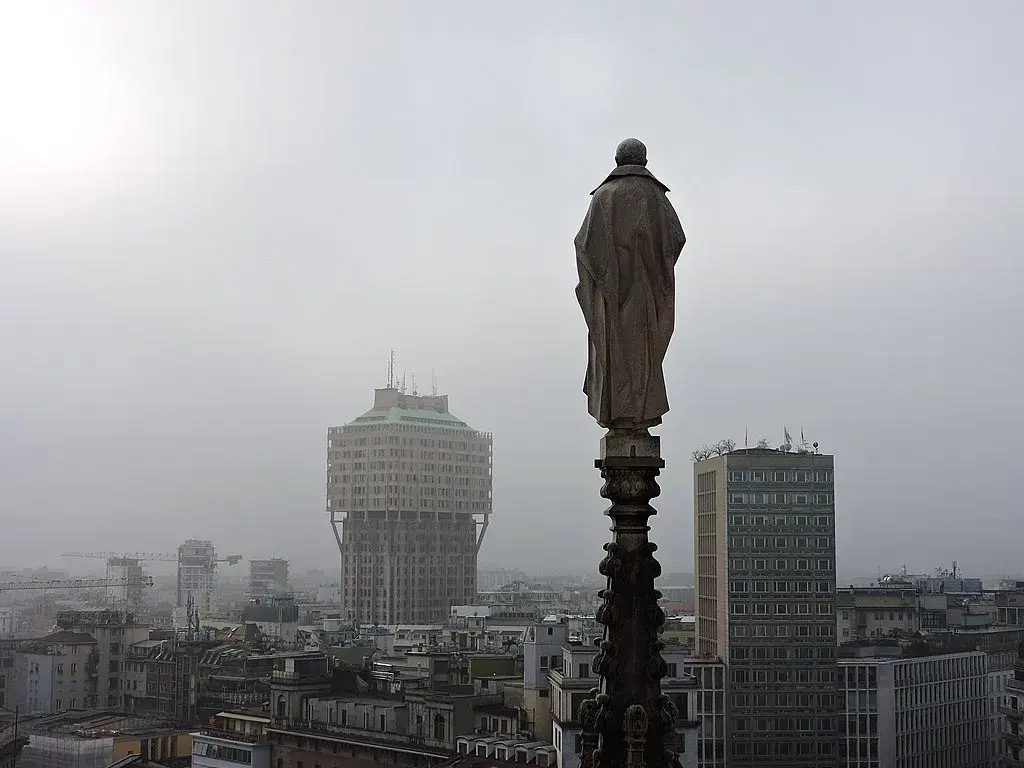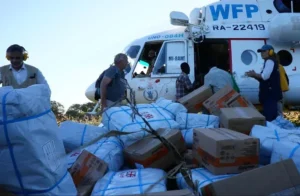The measures ban heavy vehicles from operating during the day and set limits on heating and industrial agricultural activities in nine provinces.

To fight a severe air pollution crisis, the Lombardy region in northern Italy enacted strict environmental measures on Tuesday across Milan and eight other provinces (Monza, Como, Bergamo, Brescia, Mantua, Cremona, Lodia and Pavia).
The measures ban heavy vehicles from operating during the day and set limits on heating and industrial agricultural activities in all nine provinces.
This means that in big cities like Milan, the dirtiest vehicles will not be allowed to drive between 07:30 and 19:30 (06:30-18:30 GMT), and home heating will not be able to go above 19 degrees, as planned in the regional scheme for temporary measures to enhance air quality.
The absence of rain and wind has worsened air pollution levels in Italy, especially in the Po River Valley, a landlocked industrial area in the north of the country. Parts of the Italian peninsula often suffer from poor air quality in winter due to a mix of low rainfall, industrial and vehicle emissions, and smog-holding mountain ranges.
Italy has the highest number of deaths linked to air pollution with about 80,000 a year, according to the Italian Society of Environmental Medicine.
When announcing the restrictions, the regional government mentioned particle concentrations above acceptable levels and weather forecasts showing that the smog will not clear soon.
The Italian environmental group Citizens for the Air said the situation is serious and demands rigorous measures.
“The current pollution limits are totally inadequate to protect our health, this is what the World Health Organization states,” said Anna Gerometta, of Citizens for Air.
The government recently passed a decree allowing several regions in northern Italy, which are among the most polluted in the country, to delay banning diesel-powered cars, arguing that consumers and businesses could not switch so fast to low-emission or fully clean vehicles.
While imposing anti-pollution measures on Tuesday, Lombard authorities insisted that the situation was improving based on yearly data.
Giorgio Maione, Lombardy’s environmental and climate assessment expert, said that the concentration of particles has decreased in the last 20 years and that investments in sustainable energy renovations made in the last five years have amounted to 19 billion euros.
The high levels of pollution in northern Italy, the country’s economic powerhouse, have prompted several provinces to apply restrictions this Tuesday to lower the concentration of particles in the air, with limitations on traffic and the use of the heating in homes.
Lombardy also forbids the spreading of livestock waste, open burning and the use of some biomass generators, in a package of temporary measures that is usually applied between the months of October and March, and when the levels surpass the established maximums of 50 micrograms per cubic meter of air.
The region will keep these measures active for at least four consecutive days and for up to seven if the amount of microparticles in the air is not reduced enough.
In nearby Emilia-Romagna (north), restrictions have also been imposed, such as a total ban on the circulation of the most polluting vehicles in its capital, Bologna, on the use of biomass for domestic heating and on parking with the engine on, among others.







